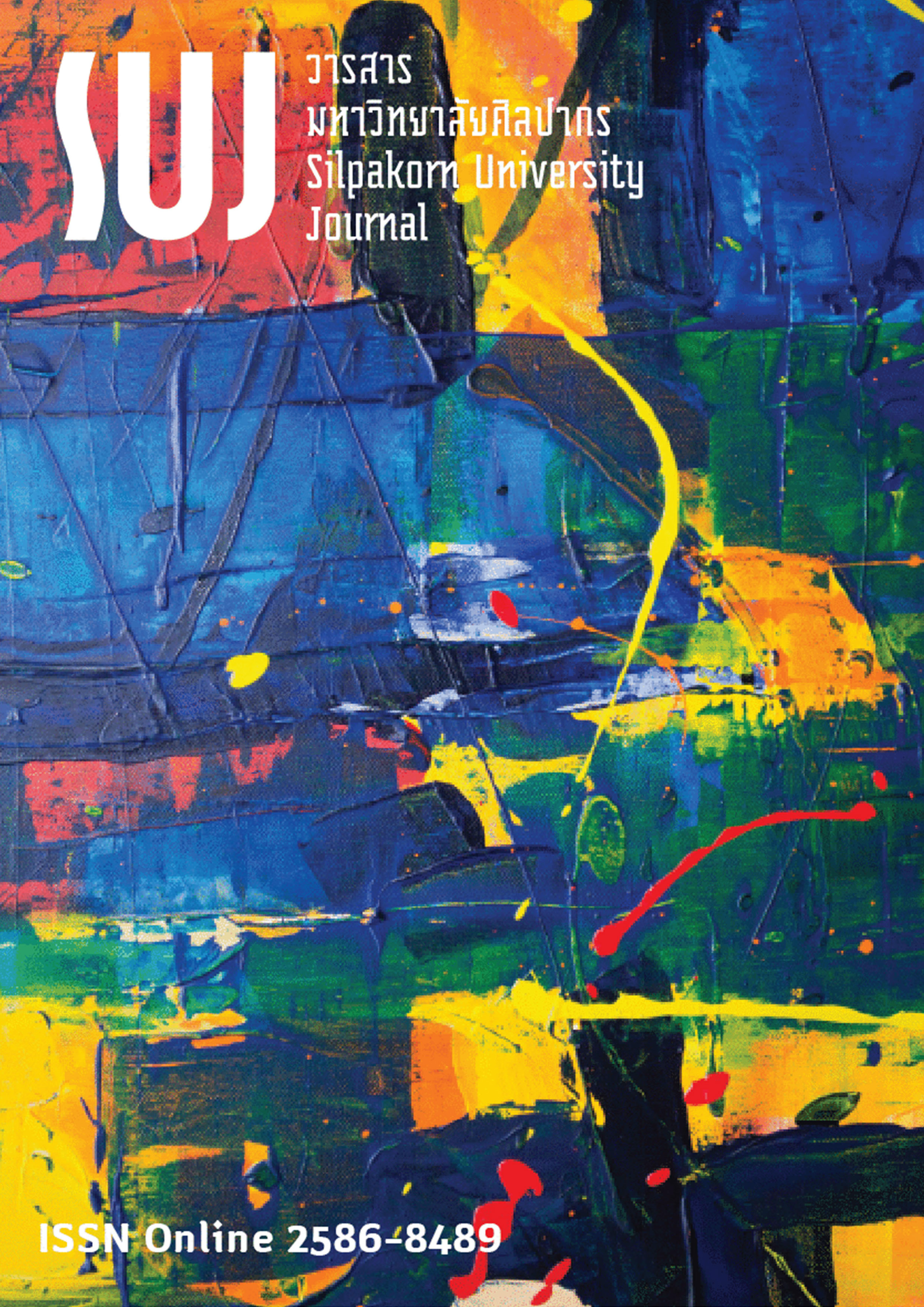การพัฒนาระบบโค้ชด้วย GROW Model เพื่อพัฒนาสมรรถนะของอาจารย์มหาวิทยาลัยในการออกแบบงานวิจัย (Development of coach system by GROW Model to improve the performance of university faculty in research design)
Main Article Content
Abstract
ปัจจุบันการโค้ชเป็นกระบวนการเรียนรู้รูปแบบหนึ่งที่กำลังได้รับความสนใจและมีความสำคัญต่อทุกองค์กร เพราะเป็นเครื่องมือ เทคนิค และวิธีการที่นำมาใช้พัฒนาศักยภาพของบุคคลในองค์กรได้ งานวิจัยนี้จึงมีวัตถุประสงค์เพื่อให้อาจารย์มหาวิทยาลัยสามารถออกแบบงานวิจัยได้ โดยผู้วิจัยร่วมกับโค้ชดำเนินการโค้ชให้กับอาจารย์ที่อาสาสมัคร จำนวน 3 คน จากคณะบริหารธุรกิจและการบัญชี คณะพยาบาลศาสตร์ และคณะศึกษาศาสตร์ที่ได้มาโดยการสุ่มแบบแบ่งชั้น ด้วยการประกาศรับสมัครให้แต่ละคณะพิจารณาคัดเลือกอาจารย์ที่มีความประสงค์เข้ารับการโค้ช คณะละ 1 คน จากนั้นรวบรวมแบบบันทึกการสังเกตวิธีโค้ช ประเมินโครงการวิจัยเพื่อขอรับทุน สอบถามความคิดเห็นของโค้ชที่มีต่อการพัฒนาอาจารย์ สอบถามความพึงพอใจของโค้ชชี่ที่มีต่อโค้ช และโค้ชชี่ประเมินตนเอง วิเคราะห์ข้อมูลด้วยสถิติเชิงพรรณนา ผลการวิจัย พบว่า โค้ชดำเนินการโค้ชตาม GROW Model ทุกขั้นตอน โดยที่โค้ชชี่ทุกคน สามารถออกแบบงานวิจัยสำเร็จตามเป้าหมายโค้ชมีความเห็นว่าโค้ชชี่มีการเปลี่ยนแปลงพฤติกรรมดีขึ้นในระดับมากที่สุด ในส่วนของโค้ชชี่มีความพึงพอใจต่อวิธีการโค้ชในระดับมากที่สุดเช่นเดียวกัน และเห็นว่าตนเองมีพัฒนาการด้านความสามารถในการตั้งคำถามเพื่อความเข้าใจ และการสร้างมนุษยสัมพันธ์อันดีกับโค้ชในระดับมากที่สุด ส่วนด้านความสามารถในการสื่อสาร ความมุ่งมั่นในการสืบค้นความรู้ และความมุ่งมั่นที่จะทำงานให้สำเร็จอย่างไม่ย่อท้อ มีพัฒนาการอยู่ในระดับมาก
Nowadays, coaching is a learning process that is gaining attention and is important for organizations because it is a tool, technique, and method which can be used to develop the potential of employees in organizations. The objective of this research is to coach university lecturers to design their own research projects. The coaches trained three volunteer instructors from the Faculty of Business Administration and Accountancy, the Faculty of Nursing, and the Faculty of Education. One volunteer per faculty was selected through the recruitment process using stratified random sampling. The observation records of coaching were then collected. The research project was assessed to apply for grants. The coaches were asked for their opinions on teacher development. The data on the participants’ self-assessment and their satisfaction with the coaches were analyzed with descriptive statistics. The research result revealed that the coaches followed the GROW Model coaching step by step. All participants were able to design and achieve their targets. The coaches noticed the highest improvement of the participants’ behaviors. The participants also had the highest level of satisfaction with the coaching method and realized their ability to pose questions for better understanding and build a good relationship with the coaches. There was also a high level of development in communication ability and the determination to do research and work untiringly.
Downloads
Article Details

This work is licensed under a Creative Commons Attribution-NonCommercial-NoDerivatives 4.0 International License.
References
Cox, E., Bachkirova, T., & Clutterbuck, D. (2014). The Complete Handbook of Coaching. London: SAGE Publications.
Dexter, J., Dexter, G., & Irving, J. (2011). An Introduction to Coaching. London: SAGE Publications.
Guest, A. B., & Willis, P. (2003). Coaching - Take the ride - but avoid the bandwagon. The Coaching & Mentoring Network. [Online]. Retrieved January 19, 2017 from http://www.coachingnetwork.org.uk/resourcecentre/articles/ViewArticle.asp?artId=77
International Coach Federation (ICF). (2014). International Coach Federation Releases Results of 2014 Global Consumer Awareness Study. CISION PR Newswire. [Online]. Retrieved January 21, 2016 from https://www.prnewswire.com/news-releases/international-coach-federation-releases-results-of-2014-global-consumer-awareness-study-259783711.html
Joyce, B., Weil, M., & Calhoun, E. (2009). Models of Teaching (8th ed.). Boston, MA: Pearson.
Mihiotis, A., & Argirou, N. (2016). Coaching: from challenge to opportunity. Journal of Management Development, 35(4): 448-463.
Moen, F., Federici, R. A., & Klemetsen, H. (2014). Coaches competencies – Nordic skiing. Journal of Excellence, 16: 62-73.
Office of National Higher Education Science Research and Innovation Policy Council. (2022). Times Higher Education World University Ranking 2021 (รายงานการวิเคราะห์ ตัวชี้วัดความเข้มแข็งของมหาวิทยาลัยในประเทศไทย จากการจัดอันดับโดย Times Higher Education (THE) ประจำปี 2021). [Online]. Retrieved March 14, 2022 from https://www.nxpo.or.th/th/report/9677/
Sinthunok, Thitiwan. (2017). Meaning and Importance of Coaching (ความหมายและความสำคัญของการโค้ช). [Online]. Retrieved January 21, 2017 from http://www.dr-thitiwan.com/coaches/
Whitmore, J. (2012). The GROW Model. Performance Consultants. [Online]. Retrieved March 14, 2022 form https://www.performanceconsultants.com/grow-model
Wongyai, Wichai., & Phatphon, Marut. (2014). Cognitive Coaching (การโค้ชเพื่อการรู้คิด). Bangkok: Charansanitwong Printing. [Online]. Retrieved July 10, 2017 from http://www.curriculumandlearning.com/upload/Books/%E0%B8%81%E0%B8%B2%E0%B8%A3%E0%B9%82%E0%B8%84%E0%B9%89%E0%B8%8A3_1539206334.pdf


